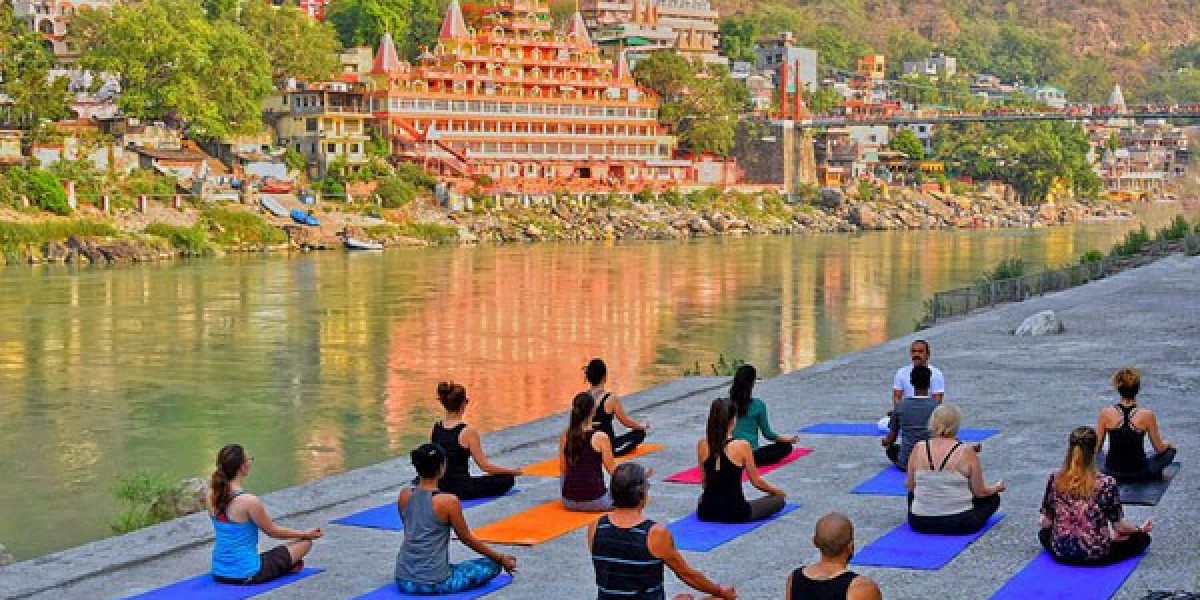Rishikesh, a serene town nestled in the foothills of the Himalayas along the banks of the sacred Ganges River, is often referred to as the “Yoga Capital of the World.” Over the decades, it has evolved from a quiet spiritual hub for saints and seekers into the global epicenter for yoga teacher training courses (TTCs). Thousands of aspiring yoga teachers from around the world flock to Rishikesh every year to deepen their practice, earn certifications, and immerse themselves in the birthplace of yoga.
But how did Rishikesh rise to this status? What makes it such a magnet for yoga practitioners and teachers alike? The journey of Rishikesh from a spiritual town to the world’s yoga teacher training capital is both historical and cultural, steeped in tradition yet adapted for modern seekers.
Ancient Roots of Yoga in Rishikesh
Yoga is believed to have originated in India over 5,000 years ago, and Rishikesh has always held a special place in this tradition. According to ancient texts, sages and rishis meditated in the forests and caves of Rishikesh, seeking enlightenment and transmitting spiritual wisdom. The Himalayas themselves were considered a sacred abode of divine energy, and the Ganges River symbolized purity and liberation.
Rishikesh’s spiritual reputation attracted seekers long before it became a yoga training destination. Great sages like Adi Shankaracharya in the 8th century established spiritual centers here, solidifying its role as a pilgrimage town. For centuries, Rishikesh was not about certificates or formal schools but about self-realization, meditation, and surrender.
The Global Spotlight: The Beatles and the 20th Century
While Rishikesh had long been a spiritual center in India, its global reputation surged in the 1960s. A turning point came when The Beatles traveled to Rishikesh in 1968 to study transcendental meditation at the ashram of Maharishi Mahesh Yogi. Their stay drew worldwide attention to the town and brought international interest in Indian spiritual practices.
Suddenly, Westerners began flocking to Rishikesh to explore yoga, meditation, and Eastern philosophy. Ashrams and yoga centers started adapting to meet this growing interest, offering structured programs, teachings in English, and eventually teacher training courses.
Growth of Yoga Teacher Training in Rishikesh
The late 20th and early 21st centuries witnessed a major transformation. With yoga gaining popularity worldwide as a holistic practice for health, mindfulness, and spirituality, the demand for certified yoga teachers has grown rapidly.
Rishikesh responded to this demand by establishing formalized yoga teacher training courses, many accredited by Yoga Alliance—a global body that sets international standards for yoga education. These courses, typically 200-hour and 300-hour programs, blended traditional yogic knowledge with structured curricula to meet modern global expectations.
Unlike urban yoga studios elsewhere, Rishikesh offered students not just classroom learning but also immersion in authentic yogic culture. Waking up to the sounds of temple bells, practicing asanas along the Ganges, and chanting mantras in ashrams created an experience that felt both transformative and deeply connected to yoga’s origins.
Why Rishikesh Stands Out for Yoga Teacher Training
Several unique factors have made Rishikesh the global leader in yoga teacher training:
1. Spiritual Ambience
Rishikesh is not just a town; it is an experience. Surrounded by the Himalayan foothills and the sacred Ganges, its atmosphere naturally encourages introspection, mindfulness, and spiritual practice. This serene backdrop provides the perfect environment for immersive yoga study.
2. Authenticity of Tradition
Unlike many modern yoga studios around the world that focus primarily on the physical aspect of yoga, Rishikesh emphasizes yoga as a complete lifestyle. Teacher training programs here often integrate asana, pranayama (breathwork), meditation, philosophy, Ayurveda, and chanting. Students leave not only as certified teachers but also with a deep appreciation of yoga’s spiritual essence.
3. Renowned Teachers and Lineages
Rishikesh is home to many respected yoga masters and scholars who have dedicated their lives to teaching and preserving yogic wisdom. This allows students to learn from direct lineages of traditional knowledge—something hard to replicate in the West.
4. Community of Global Seekers
Every year, thousands of students from diverse backgrounds come to Rishikesh for TTCs. This creates a multicultural environment where practitioners exchange experiences, build friendships, and form a global yoga community.
5. Affordability
Compared to yoga teacher training courses in Western countries, Rishikesh offers much more affordable programs without compromising on quality. Accommodation, food, and training are typically included, making it accessible to a wide range of students.
Balancing Tradition with Modern Needs
While Rishikesh remains rooted in its spiritual traditions, it has also adapted to modern requirements. Yoga schools now provide structured syllabi, English-speaking instructors, and Yoga Alliance certifications recognized worldwide. At the same time, many programs still emphasize daily rituals like morning meditation, mantra chanting, and sattvic (pure, vegetarian) meals, ensuring that the essence of yoga is preserved.
This blend of tradition and modernity is a key reason why Rishikesh continues to appeal to international students. It allows them to gain professional certification while experiencing yoga as a way of life.
The Ripple Effect on the Global Yoga Community
Graduates of yoga teacher training in Rishikesh often return to their home countries to teach yoga, spreading the wisdom and practices they learned. Many establish yoga studios, retreats, or online classes, carrying a piece of Rishikesh with them. This has created a ripple effect, making Rishikesh not just a destination but a source of global yoga culture.
The authenticity of training in Rishikesh is often regarded as a badge of honor in the international yoga community. For many, it is considered a rite of passage to study in the birthplace of yoga before becoming a teacher.
Challenges and the Future of Yoga in Rishikesh
Despite its popularity, Rishikesh faces challenges. The growing commercialization of yoga has raised concerns about maintaining authenticity. With the influx of tourists and schools, some worry that yoga could become diluted into a mere fitness trend rather than a spiritual discipline.
However, many institutions in Rishikesh are actively working to preserve the true essence of yoga while meeting modern demands.






